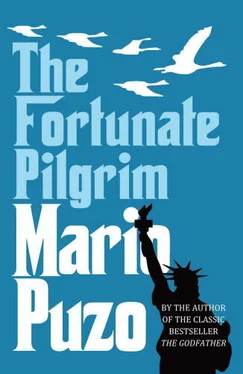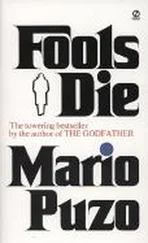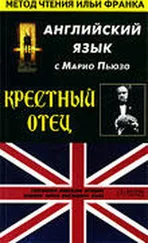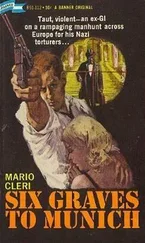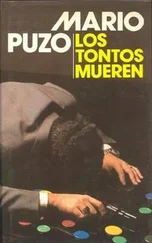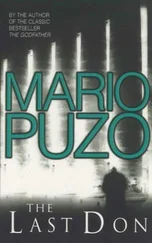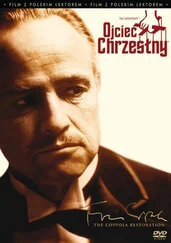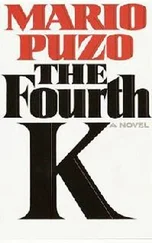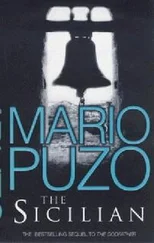But still, the father, never knowing he would be saved, wheeled the carriage back and forth. Not knowing that deep down in his blood, in the tiny mysterious cells of his brain, a new world was forming. Slowly, day by day, pain by pain, beauty by lost beauty, the walls of the world he feared so much were crumbling in the timelessness of his mind, and in a year a new fantastic world would spring up, himself the god and king, his enemies startled and afraid, his loved ones forever lost and yet that loss of love not felt or mourned. A world of such chaotic pain that he would be drowned in ecstasy, mystery and fear banished. He would be free.
But it was like magic, and no hint or warning could come beforehand. Now, this night, he put his trust in one summer of tilling the earth, as he had done so long ago, a boy in Italy.
THE WORLD HAS a special light for children, and sounds are magical. Gino Corbo moved through the clang of engines, circles of mellow lamp-post lights, heard young girls laughing, and played his game so intently that his head ached. He ran back and forth across 31st Street, trying to capture other children or surround them. But someone always backed against a wall, hand outstretched. Once Gino was trapped, but a taxi cut his opponents off and he ran back to his own sidewalk. He saw his father watching and ran to him shouting, “Gimme a penny for lemon ice.” Snatching the coin, he ran along Tenth Avenue and planned a beautiful trick. He tried to run past his mother and her friends. Zia Louche grabbed his arm and pulled him off his feet, her bony fingers a trap of steel.
His dazed, impatient eyes saw a circle of old women’s faces, some hairy and mustached. Frantic to be away, afraid the game would end, Gino tried to run. Zia Louche held him like a fly, saying, “Rest—sit with your mother and rest. You’ll be sick tomorrow. Feel how your heart is beating.” And she put her withered claw upon his chest. He pulled violently. The old crone held him and said with ferocious love, “ Eh, come è faccia brutta.” He understood she was calling him ugly, and that made him still. He stared at the circle of women. They were laughing but Gino did not know they laughed with delight at his fierce desire, his blazing eyes.
He spat at Zia Louche, the fake spit of Italian women that shows contempt in a quarrel. It got him free, and he was so quick that his mother hit his face only a glancing blow as he sped away. Around the corner, along 30th Street to Ninth Ave-nue, up the Avenue to 31st Street, and then through 31st Street to Tenth Avenue he would go; having traveled the four sides of the city block, he would swoop into the game out of the darkness and with one masterly stroke shatter the enemy.
But as he ran full speed toward Ninth Avenue, a line of alien boys formed a wall against him. Gino pumped his legs higher and faster and burst through, shattered them. Clutching hands tore his shirt, the wind rushed against his face. On Ninth Avenue the boys came after him, but when he turned into the darkness at the top of 31st Street they did not dare to follow. Gino stopped running and walked softly along the stoops. He was on the final side of the square and below him, at the foot of the street, near Tenth Avenue, painted into the dim yellow cones of light cast by lamp posts, his friends scurried to and fro like little black rats, still playing. He was in time.
He rested in darkness and then went very softly, slowly, down the street. In a basement room he saw a little girl leaning against a wall half white, half electric blue. She rested her head against her arm upon the wall, hiding her eyes from the cold, artificial light of the room, empty, deserted behind her. Gino knew she was playing hide and seek, not crying, and that if he waited, the deserted room would come magically alive with shrieking girls. But he did not stop, not knowing he would always remember the girl alone, hiding her eyes against a blue and white wall; desolate, never changing, as if by not stopping he left her there forever, enchanted. He went on.
A dim patch of light made him pause. He shivered. Sitting at the window, leaning out of her street-level flat, an old Irish crone rested her head on a furry pillow and watched him move past her down the empty silent street. In that weak yellow light her head was bony with age, her thin, whiskered mouth bloody with the light of a holy red candle. Behind that feral face, faintly visible in the shadows of her room, a vase, a lamp, and a graven image gleamed like old bones. Gino stared at her. The teeth bared in greeting. Gino ran.
Now he could hear the shouts of his friends; he was near the circles of light on Tenth Avenue. He crouched on the steps of a cellar, hidden, powerful, ready to strike. He never thought to be afraid of the dark basement below or of the night. He forgot his mother’s anger. He existed only for this moment and the moment he would enter the pool of light and shatter it.
High over Tenth Avenue, Gino Corbo’s half brother, Vincenzo Angeluzzi, thirteen years old, brooded to the softened, whispery sound of the summer night that floated up to him. He brooded on his window sill, the long line of rooms behind him dark and empty, the door from the hall to the kitchen securely locked. He was self-exiled.
The dream of summer, freedom, and play had been taken from him. His mother had informed him that in the morning he would start working for the Panettiere, and work until school started in the fall. He would carry heavy baskets of bread in the hot sun while other boys swam in the river, played stickball and “Johnny Ride the Pony,” and hitched onto the backs of trolley cars to see the city. There would be no sitting in the shade eating lemon ice or reading by the wall of Runkel’s factory or playing “Bankers and Brokers” and “Seven-and-a-half” for pennies.
A watcher on the western wall of the city, everything weighed down his soul and spirit, the wasteland of railroad yards, steel tracks, deserted box cars, engines giving off dirty red sparks and low hoots of warning. The Hudson was a black ribbon beneath the cragged Jersey shore.
He dozed on his window sill, and the babel of voices rose like a faint shout. Far down the Avenue he saw the red lantern of a dummy boy leading his freight train from St. John’s Park. The children below him played on, and Vincent waited with gloomy satisfaction for their shouts of joy, savoring his bitterness at not sharing their pleasure. And then the children were screaming and scrambling up the steps of the bridge to wait for the damp cloud of steam that would make them invisible.
Vincent was too young to know that he was melancholy by nature, that this distressed his sister Octavia so that she brought him presents and candy. When he was a toddling infant Octavia used to take him into her bed, tell him stories, and sing songs so that he would go to sleep with a remembrance of smiles. But nothing could change his nature.
Below, he could hear Zia Louche quarreling shrilly and his mother’s strong voice supporting her. The resentment came that this old crone was his godmother and that the five-dollar gold piece she gave him every birthday must be paid for with a kiss—a kiss he gave only to make his mother happy. He thought his mother beautiful, though she was fat and always dressed in black, and he always obeyed her.
But Zia Louche, ever since he could remember, had made him hate her. Long ago when he played on the kitchen floor between his mother’s feet, Zia Louche would study him. The two women would be talking violently, without their public formality, recalling with gusto their misfortunes through the years. There would be a silence. The two women would look at him thoughtfully, sipping coffee. Then Zia Louche would sigh through age-browned teeth and say with hopeless, angry pity to the little boy, “Ah, miserabile, miserabile. Your father died before you were born.”
Читать дальше
